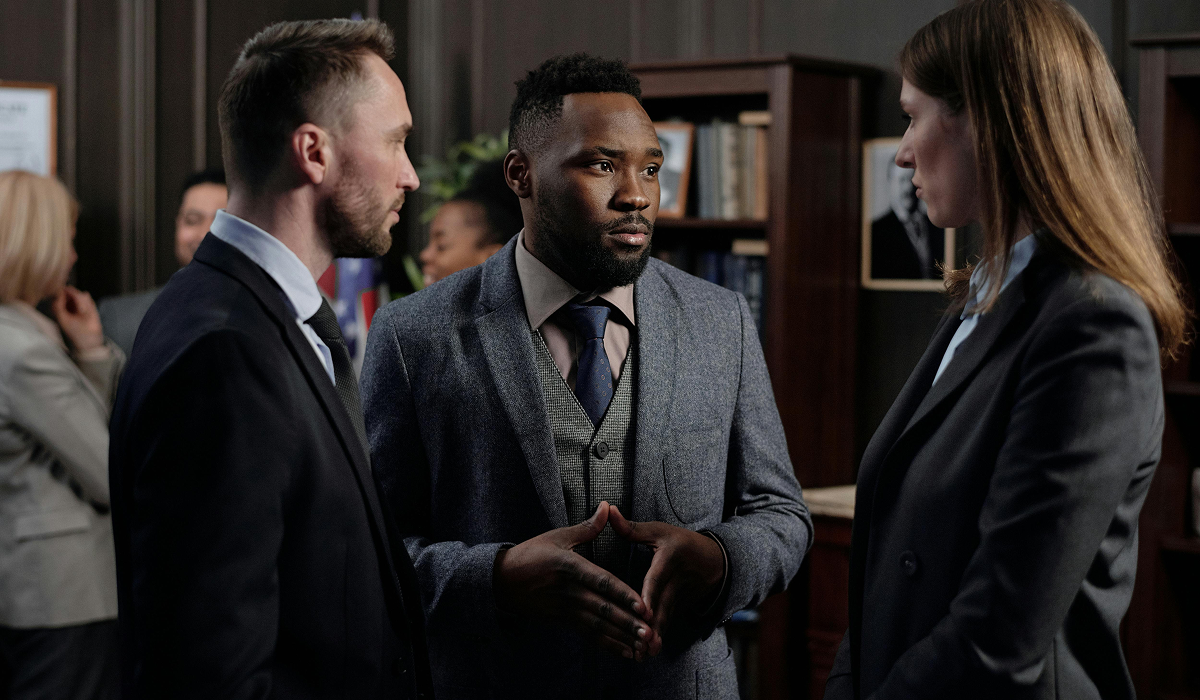
Under civilian law, a defendant may plead guilty to a crime while maintaining innocence. This is what is known as the Alford Plea. Also known as the best interest plea, it is used to skip the trial and move forward to what is perhaps a light sentencing such as time served or no sentence at all. It is merciful to the defendant and merciful to the court’s time. In the military justice system, there is no such thing as mercy and as such, there is no such thing as the Alford Plea. The military justice system exists to destroy you and as such, when you admit guilt they will make sure you mean it. It will be a public affair for all to see much like the ancient Roman emperors who held a Triumph when they returned from conquest and paraded the captives before the Roman mob. There is a time and place where a guilty plea is your best option, but it is entirely possible to do so with dignity.
The Unequivocal Admission of Guilt
When you, as a service member, consider pleading guilty in a military court, it’s crucial to understand the full implications. Under Article 45(b) of the UCMJ, a guilty plea significantly affects your legal proceedings by waiving your right to trial and any motions regarding the factual basis of your guilt. This plea not only accelerates the legal process but also involves detailed discussions about the case facts, which you must be prepared to disclose fully.
In the military system, a guilty plea must be an unequivocal admission of guilt, as the UCMJ does not accommodate pleas that contradict factual guilt. This strict requirement ensures that your plea is based on a genuine acknowledgment of guilt corroborated by fact. This also serves as the prosecution’s Triumph parade where they can scare other service members into compliance by showing what they have just done to you.
An Alford Plea would enable you to retain some dignity by telling others, “I’m innocent, but I just plead guilty to avoid the consequences.” The military justice system says no sir like a parent scolding their child. They tell you that you will admit guilt. You will acknowledge that you’ve been a bad boy and you will take your punishment like a good little boy.
Understanding Guilt Through the Providence Inquiry
The providence inquiry is a process that ensures that your guilty plea is informed and voluntary. During this process, you’ll discuss the nature of the charges and the associated penalties. They’ll cover your rights and ensure that you know that you have the option to plead not guilty. The court wants to make sure that your plea is voluntary and that it was made without coercion.
You’ll then have to be prepared to discuss your crimes openly and admit guilt to every single element that must be satisfied according to the UCMJ. For example, the charge of extramarital sexual conduct is defined as follows:
(1) That (state the time and place alleged), the accused wrongfully engaged in extramarital sexual conduct, to wit: __________ with __________;
(2) That, at the time, [the accused was married to someone else, which he/she knew] [(state the name of the person alleged) was married to someone else, which the accused knew]; and
(3) That, under the circumstances, the conduct of the accused was (to the prejudice of good order and discipline in the armed forces) (of a nature to bring discredit upon the armed forces) (to the prejudice of good order and discipline in the armed forces or of a nature to bring discredit upon the armed forces).
“Extramarital sexual conduct” means any of the following acts engaged in by persons of the same or opposite sex:
(a) genital to genital sexual intercourse;
(b) oral to genital sexual intercourse;
(c) anal to genital sexual intercourse; and
(d) oral to anal sexual intercourse.
Which means if you are pleading guilty to this charge, you will have to acknowledge that you did indeed have extramarital sexual conduct with the 1st Sergeant’s wife and you knew she was married because their wedding picture was next to the bed as you proceeded. How much detail you’ll have to go into is up to the judge, but if you pulled off the extramarital sexual conduct Bingo card by doing a, b, c & d, well, that’s another topic of conversation.
Pleading Guilty is a Strategic Decision
Even when a service member is guilty, openly admitting guilt is not always strategically advisable. The First Sergeant could’ve walked in right as things were concluding, and you’d still potentially have room to fight the charge or contest how evidence was gathered.
However, if you publicly documented the entire episode on Snapchat, sharing with everyone in the barracks and captioning it, “Me and Top’s Wife,” then your situation becomes considerably more challenging. Yet, even then, there might be options available—like pursuing separation in lieu of trial (SILT), especially if circumstances indicate that alcohol impaired your decision-making or consent. But make no mistake: choosing to plead guilty is never surrender; it’s a carefully considered strategic decision pursued only if it’s genuinely in your best interest. Maybe, given the situation with the First Sergeant’s spouse, you’ve decided it was worth it and you’re ready to move on from the military anyway.
There is one thing you must not do and this next section is the most important.
Do Not Admit Guilt Without Talking to Experienced Counsel
We’re going to repeat that headline again for emphasis, do not admit guilt without first consulting experienced counsel. Military investigators and prosecutors often use tactics designed to encourage service members to incriminate themselves. Many service members mistakenly admit guilt under pressure or on the advice of inexperienced or overwhelmed counsel.
In our experience, many cases initially seem challenging but become manageable or even winnable once reviewed by skilled counsel. There are often multiple ways to challenge or reduce the charges against you, provided you do not prematurely admit guilt or discuss the details without proper legal advice. If confronted by military authorities or questioned by anyone, your best and safest approach is to politely decline to answer and immediately seek legal counsel.
Do not jeopardize your future by attempting transparency or cooperation without the guidance of experienced legal representation.
There is No Mercy Under the UCMJ
If you are facing an investigation or court martial for any charge under the UCMJ you have to get ready for a fight. You must understand that the military justice system does not exist to ferret out the truth and pursue justice. It exists for the singular purpose of upholding military order and discipline. For that to work, they have to make a public example out of someone and destroy their life.
If you don’t fight back they will make that example out of you. You will be the main attraction at the Triumph as they parade your destroyed life in front of all to see. Even when pleading guilty they will make a spectacle out of you if they can. Don’t let them do that to you.
If this is what you are facing, reach out to us and we’ll shoot you straight on what’s ahead. Admitting guilt is done so only from a strategic position. We love a good brawl and we will fight like hell to make sure you don’t have to do that. However, when the time is right you will fully understand why we are recommending that course of action. Reach out to us and get us into the fight for your career, retirement, and freedom. If you let them, they will take it all from you.




